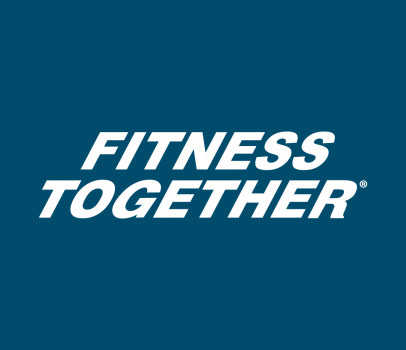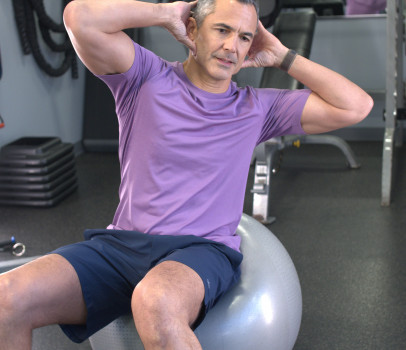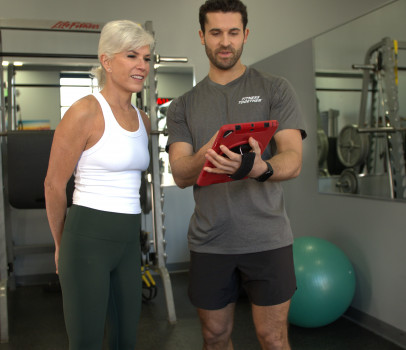Page 1 of 3 Next

New Member FAQ
Jun 9, 2025
F.A.Q. What should I wear to my sessions? We recommend wearing loose-fitting, comfortable gym clothes that allow for a full range of motion. For footwear, please bring a clean pair of gym shoes. This will help prevent dirt and debris from being tracked into the gym, ensuring a clean environment. Additionally, make sure your shoes are in good condition to avoid any foot...

How To View Your Schedule via App
Dec 16, 2024
How to View Your Schedule in App for Fitness Together Portsmouth: Download the MindBody App: Go to the App Store and download "MindBody: Fitness, Salon & Spa." Login: Use the same email address, first name, and last name associated with your Fitness Together Portsmouth account. If you're unsure of the...

You're Busy — and That's Why Personal Training Makes Sense.
Sep 17, 2025
You're Busy — and That's Why Personal Training Makes Sense. You're busy, life is packed with endless to-do lists. Between work, family, errands, and personal commitments, it often feels like there just aren’t enough hours in the day. And when schedules get tight, workouts are usually the first thing to drop off the calendar. Yet, physical health is...

Your First Personal Training Session: What to expect
Jul 17, 2025
Your First Personal Training Session: What to Expect There’s no need to feel nervous before working with a personal trainer, but it’s totally normal to feel this way. Beginning a fitness journey can be an exciting — and vulnerable — time. It can feel nerve-wracking to reach out for help, even though you’re pumped about putting in the work to...

Extreme Morning Routines: What Works, What Doesn’t.
May 15, 2025
While the morning routines of some content creators are impressive, you don’t necessarily need to go to David-Goggins-style extremes to reap the benefits of a great morning routine. Here, we’ll take a look at some of the most popular social media morning routine staples to help you decide how to fill your precious morning hours

The Power of Being Honest With Your Personal Trainer
Apr 28, 2025
The bottom line: even when it’s tough to be up-front with your personal trainer about your struggles, they can only do their best work if they know what’s going on during the time you’re not in the studio with them. Fitness Together® studios offer a non-judgemental, supportive environment that’s perfect for beginners and experienced exercisers alike.

From Goal-Setting to Goal-Getting
Mar 17, 2025
There’s no need to wait until you hit your ultimate goal to celebrate all of your hard work. Measuring your achievement thus far and celebrating milestones can help keep you on the path to success.

Cultivating a Success Mindset
Feb 13, 2025
Keeping a positive attitude can make all the difference when it comes to achieving your health and fitness goals, and a Fitness Together® studio is here to support you every step of the way.

Cultivating Self-Trust During Your Fitness Journey
Jan 3, 2025
Fitness Together® Studios are here to help you move forward, one healthy decision at a time. Learning to trust yourself to stick to the behaviors you need to move your health journey forward can take some time, and you don’t have to figure it out on your own.

Motivation Wanes. Habits Stick. Make Lasting Changes.
Nov 15, 2024
January 1st is just around the corner, and for many of us, that means that it’s time to dive into healthy new habits. At the Fitness TogetherⓇ studios, we’re here to help you feel your best, year-round, and we’re here to support you if you’re ready to use the motivation of a fresh start to ramp up your fitness journey! No matter where you’re currently at in your path toward becoming your healthiest self, we’ve got your back.
Page 1 of 3 Next
